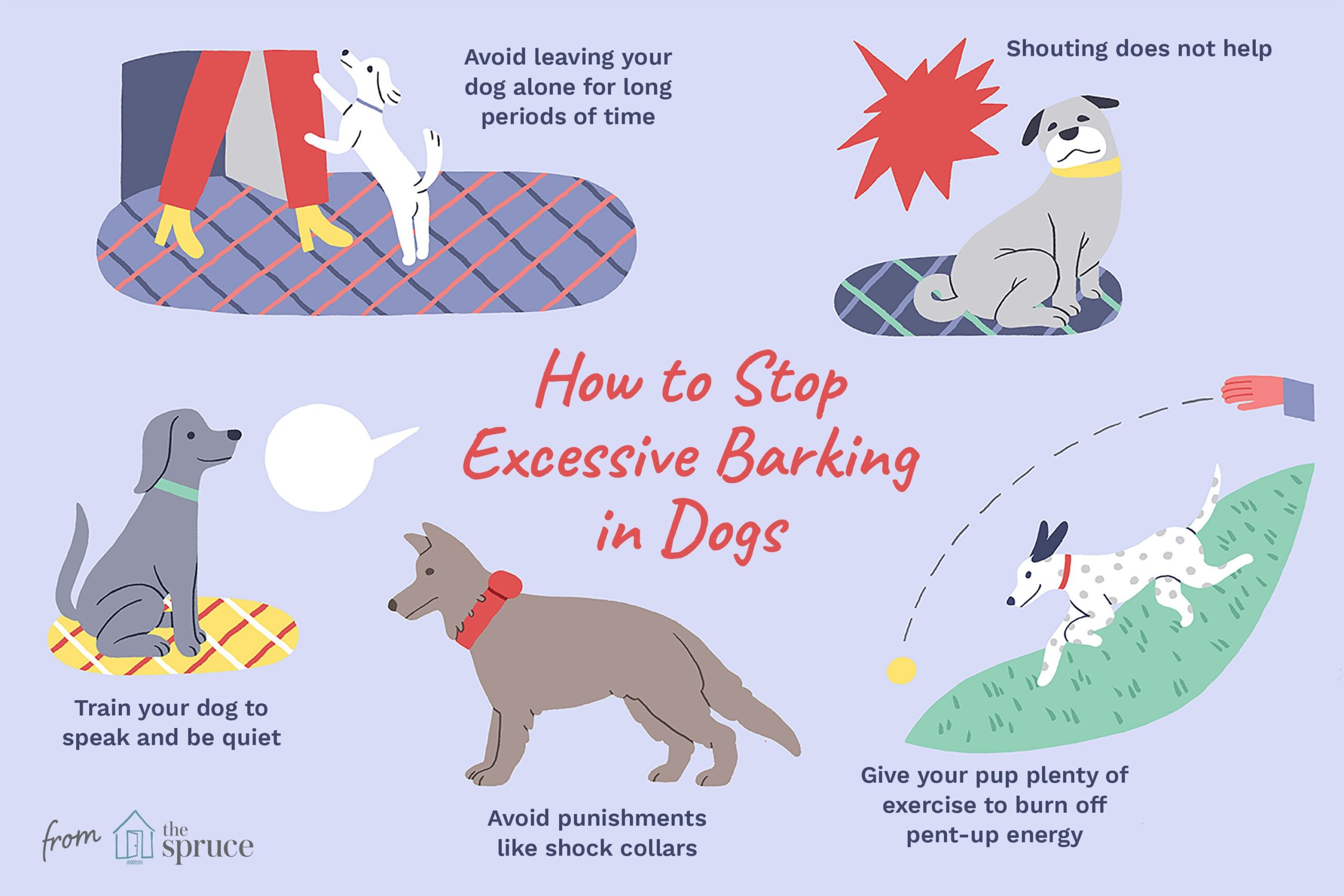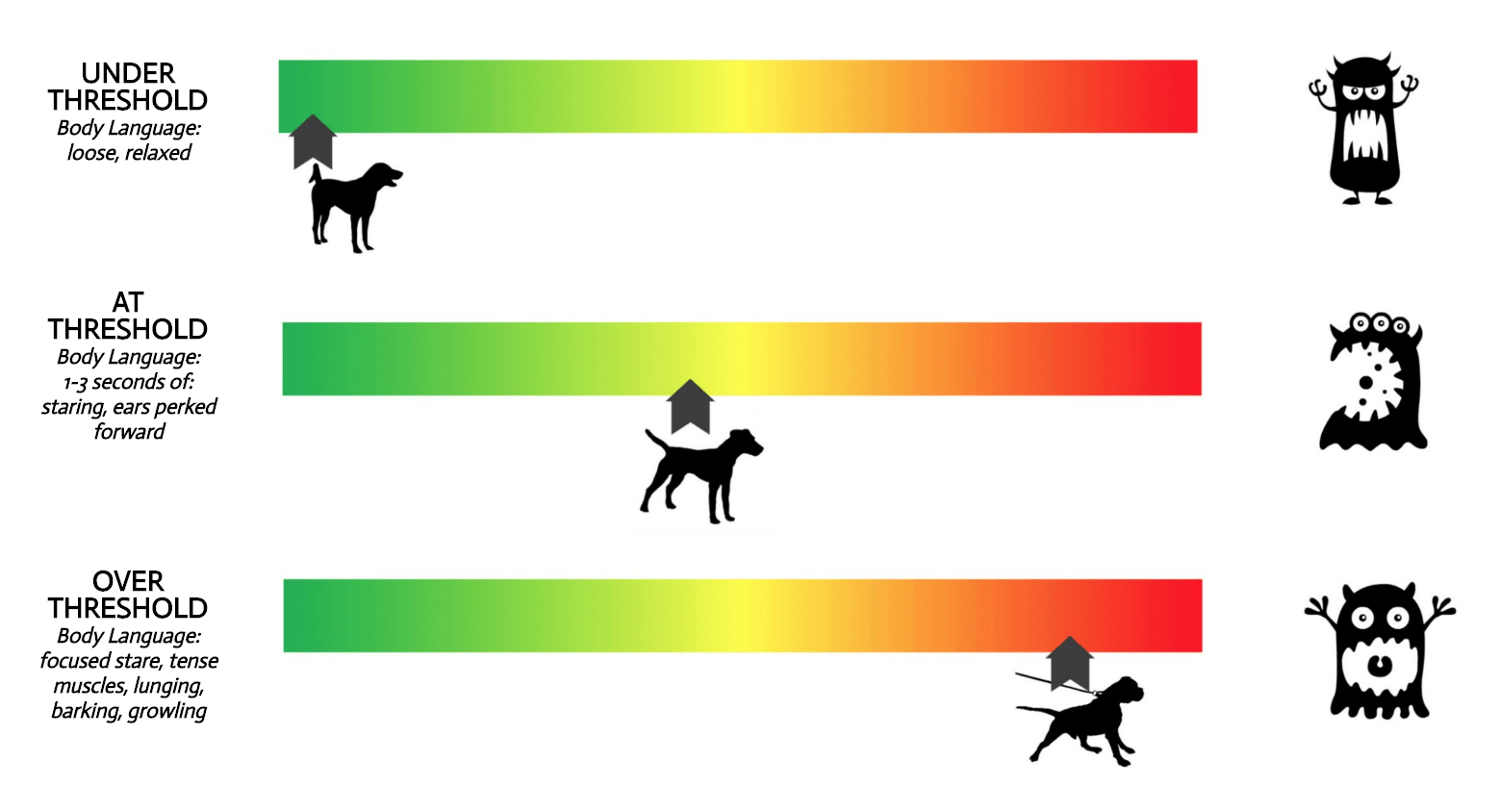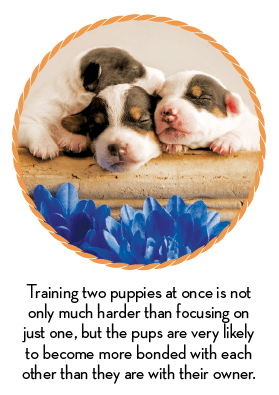Separation anxiety in puppies is a common behavioral issue that can cause distress for both the puppy and their owner.
Key Takeaways:
- Separation anxiety is a common issue in puppies, characterized by excessive distress when left alone.
- Early socialization and gradual desensitization can help prevent separation anxiety in puppies.
- Creating a safe and comfortable space for the puppy when alone can reduce their anxiety levels.
- Using positive reinforcement techniques, such as rewards and praise, can help alleviate separation anxiety in puppies.
- Seeking professional help from a veterinarian or animal behaviorist is recommended if the puppy's separation anxiety persists or worsens despite efforts to address it.
Understanding Separation Anxiety in Puppies
Separation anxiety is a common issue that many puppies experience when they are left alone. It occurs when a puppy becomes anxious or distressed when separated from their owner or primary caregiver. This can lead to behaviors such as excessive barking, destructive chewing, and attempts to escape. Understanding separation anxiety is important for pet owners so they can provide the necessary support and help their puppies overcome this challenge.
What is separation anxiety?
Separation anxiety is a condition where puppies feel extreme distress when separated from their owners. They may exhibit signs of fear, panic, or restlessness. These feelings of anxiety can be overwhelming for the puppy and may cause them to engage in destructive behaviors as a way to cope with their emotions.
How does separation anxiety affect puppies?
Separation anxiety can have a negative impact on a puppy's well-being and overall health. The constant stress and fear experienced during periods of separation can lead to physical symptoms such as loss of appetite, digestive issues, and even hair loss. Additionally, the destructive behaviors associated with separation anxiety can result in damage to household items or potential injury to the puppy.
Recognizing Signs of Separation Anxiety in Puppies
Recognizing the signs of separation anxiety in puppies is crucial for early intervention and effective treatment. By understanding these signs, pet owners can address the issue promptly and provide appropriate support for their furry friends.
Common signs of separation anxiety
- Persistent barking or howling when left alone
- Destructive behavior like chewing furniture or scratching doors
- Potty accidents even if house-trained
- Pacing or restlessness before and during separation
- Attempts to escape or excessive digging near doors or windows
How to observe and monitor your puppy for separation anxiety?
To observe and monitor your puppy for signs of separation anxiety, it's essential to set up a video camera or baby monitor when you leave them alone. This will allow you to see their behavior while you're away and identify any signs of distress. Additionally, you can also keep a record of the behaviors your puppy exhibits when left alone, noting any changes in their behavior over time.
Possible Causes of Separation Anxiety in Puppies
Understanding the possible causes of separation anxiety in puppies can help pet owners address the root cause and provide appropriate solutions. While each puppy is unique, there are certain factors that commonly contribute to the development of separation anxiety.
Lack of socialization
Puppies that have not been adequately socialized with other dogs or humans may be more prone to developing separation anxiety. Socialization helps puppies build confidence and learn how to cope with different situations, including being alone.
Previous traumatic experiences
Puppies who have experienced traumatic events such as abandonment or being separated from their mother too early may be more susceptible to developing separation anxiety. These past experiences can create a fear response when faced with similar situations in the future.
The impact of breed on separation anxiety susceptibility
Some dog breeds are known to be more prone to developing separation anxiety than others. Breeds such as Labrador Retrievers, German Shepherds, and Vizslas are among those that may have a higher risk. However, it's important to note that every individual dog is unique, and not all dogs within these breeds will experience separation anxiety.
Tips for Preventing Separation Anxiety in Puppies
Establish a Routine
Creating a consistent daily routine can help prevent separation anxiety in puppies. This includes regular feeding times, exercise sessions, and designated times for play and rest. By sticking to a predictable schedule, puppies can feel more secure and less anxious when left alone.
Gradual Desensitization
Introduce your puppy to being alone in small increments to gradually build their tolerance. Start by leaving them alone for short periods of time and gradually increase the duration as they become more comfortable. This process, known as desensitization, helps puppies learn that being alone is not a cause for distress.
Tips for Gradual Desensitization:
- Begin by leaving your puppy alone in a safe space for just a few minutes.
- Gradually increase the time spent apart, adding a few minutes each session.
- Use positive reinforcement techniques such as treats or toys to reward calm behavior during separation.
Provide Mental Stimulation
Keeping your puppy mentally stimulated can help alleviate separation anxiety. Provide interactive toys or puzzles that require problem-solving skills, engage in training sessions, or consider enrolling them in puppy classes. Mental stimulation can tire out their minds and make them more relaxed when left alone.
By following these tips, you can help prevent separation anxiety in puppies and promote their overall well-being.
Effective Strategies to Help Puppies with Separation Anxiety
Create a Safe Space
Designate an area in your home where your puppy feels safe and secure. This could be a crate or a specific room with their bed, toys, and familiar scents. Having a dedicated space helps provide comfort and reduces anxiety when you're away.
Use Calming Techniques
Implement calming techniques to help soothe your puppy's anxiety. This can include playing soft music, using pheromone diffusers or sprays specifically designed for dogs, or providing them with a piece of clothing that carries your scent. These methods can create a calming environment and make your puppy feel more at ease.
Calming Techniques to Try:
- Play classical music or nature sounds in the background.
- Use a dog-specific pheromone diffuser or spray in their safe space.
- Give them an item of clothing with your scent, such as a worn t-shirt.
Positive Reinforcement Training
Utilize positive reinforcement training techniques to help your puppy associate being alone with positive experiences. Reward calm behavior when they are left alone and gradually increase the duration of separation. This helps build their confidence and reduces anxiety over time.
By implementing these strategies, you can effectively help puppies cope with separation anxiety and improve their overall well-being.
(Note: The remaining subheadings will be expanded in separate responses due to character limitations.)
How Long Does it Take for Puppies to Overcome Separation Anxiety?
Overcoming separation anxiety in puppies can vary in duration depending on the individual dog and the severity of their anxiety. It is important to note that there is no set timeline for overcoming separation anxiety, as each puppy will progress at their own pace. However, with consistent training and patience, most puppies can show improvement within a few weeks to a few months.
Factors Affecting the Duration of Overcoming Separation Anxiety
Several factors can influence how long it takes for a puppy to overcome separation anxiety:
- The puppy's age: Younger puppies may have an easier time adapting to being alone compared to older ones.
- Past experiences: Puppies who have had negative experiences when left alone may take longer to overcome their anxiety.
- Consistency of training: Regular and consistent training sessions can help speed up the process of overcoming separation anxiety.
Tips for Helping Puppies Overcome Separation Anxiety
To help your puppy overcome separation anxiety, consider implementing these strategies:
- Gradual desensitization: Gradually expose your puppy to being alone by starting with short periods and gradually increasing the duration over time.
- Create a safe space: Provide your puppy with a comfortable and secure area where they can retreat when feeling anxious.
- Routine and predictability: Establishing a consistent daily routine can help reduce anxiety by providing structure and predictability for your puppy.
- Positive reinforcement: Reward your puppy with treats or praise when they display calm behavior during times of separation.
Breeds Prone to Developing Separation Anxiety in Puppies
While separation anxiety can affect any breed of puppy, there are certain breeds that may be more prone to developing this condition. It is important to note that individual temperament and upbringing also play a significant role in a puppy's likelihood of developing separation anxiety.
Breeds Known for Being Prone to Separation Anxiety
Some breeds that are commonly associated with an increased risk of separation anxiety include:
- Labrador Retrievers: These loyal and affectionate dogs can become highly attached to their owners, making them more susceptible to separation anxiety.
- German Shepherds: Known for their loyalty and protective nature, German Shepherds may experience separation anxiety if not properly trained and socialized.
- Cavalier King Charles Spaniels: These small and loving dogs thrive on human companionship and can develop separation anxiety if left alone for extended periods.
Tips for Managing Separation Anxiety in Prone Breeds
If you have a puppy from a breed known to be prone to separation anxiety, consider the following tips:
- Early socialization: Expose your puppy to various people, places, and experiences from an early age to help build their confidence and reduce the likelihood of developing separation anxiety.
- Provide mental stimulation: Engage your puppy in activities that keep their mind occupied while you're away, such as puzzle toys or interactive games.
- Consider professional help: Seek guidance from a professional dog trainer or behaviorist who specializes in separation anxiety to develop a tailored training plan for your specific breed.
The Impact of Separation Anxiety on a Puppy's Well-being and Health
Separation anxiety can have significant effects on a puppy's overall well-being and health. It is essential to address this condition promptly to prevent long-term negative consequences.
Physical and Emotional Effects of Separation Anxiety
Separation anxiety can manifest in various physical and emotional symptoms, including:
- Destructive behavior: Puppies with separation anxiety may engage in destructive behaviors, such as chewing furniture or excessive scratching.
- Excessive vocalization: Barking, howling, or whining excessively when left alone is a common sign of separation anxiety in puppies.
- Loss of appetite: Some puppies may experience a decreased appetite or refuse to eat when separated from their owners.
- Stress-related health issues: Chronic stress from separation anxiety can lead to digestive problems, skin irritations, and weakened immune system functioning in puppies.
Caring for a Puppy with Separation Anxiety
To support the well-being and health of a puppy with separation anxiety, consider the following care tips:
- Provide mental stimulation: Engage your puppy in activities that keep their mind occupied while you're away, such as puzzle toys or interactive games.
- Create a safe space: Set up a comfortable area where your puppy can retreat when feeling anxious, filled with familiar scents and comforting items like blankets or toys.
- Consider natural remedies: Some herbal supplements or pheromone diffusers may help calm anxious puppies; consult with your veterinarian for appropriate options.
The Importance of Professional Help for Addressing Separation Anxiety in Puppies
When it comes to addressing separation anxiety in puppies, seeking professional help is crucial for a successful outcome. Professional trainers and behaviorists have the expertise and experience to develop effective strategies tailored to your puppy's specific needs.
The Role of Professionals in Treating Separation Anxiety
Professional help can provide several benefits when dealing with separation anxiety:
- Expert guidance: Professionals can assess your puppy's behavior, identify triggers, and develop a comprehensive training plan to address their separation anxiety.
- Structured training programs: Trainers and behaviorists can provide structured training sessions that gradually expose your puppy to being alone, helping them build confidence and reduce anxiety.
- Support for owners: Dealing with a puppy experiencing separation anxiety can be challenging emotionally. Professionals offer support and guidance to owners throughout the process.
Choosing the Right Professional for Your Puppy
When selecting a professional to help with your puppy's separation anxiety, consider the following:
- Certifications and qualifications: Look for professionals who are certified or have relevant qualifications in dog training or animal behavior.
- Experience with separation anxiety: Ensure the professional has experience specifically addressing separation anxiety in puppies.
- Positive reinforcement methods: Opt for professionals who use positive reinforcement techniques rather than punitive methods.
| Catchy Conclusion: Separation Anxiety in Puppies | |
| Separation anxiety can be a challenging issue for puppy owners to address. However, with patience, understanding, and consistent training techniques, it is possible to help your furry friend overcome this condition. | |
| Remember to gradually acclimate your puppy to being alone, provide them with mental and physical stimulation, and create a safe and comforting environment when you are away. | |
| Seeking professional advice from a veterinarian or dog behaviorist can also be beneficial in severe cases of separation anxiety. | |
By addressing separation anxiety early on and implementing the right strategies
How do you stop separation anxiety in puppies?The important thing is to gradually increase the amount of time your puppy spends alone during training. Before leaving them alone, ensure that they have been properly exercised and given the chance to relieve themselves. Giving them a small meal may also help them feel more calm and ready for sleep. Do puppies grow out of separation anxiety?It is normal for young puppies to feel some anxiety when left alone initially, but this feeling should naturally decrease over time. However, separation anxiety is a more severe issue that needs assistance and will worsen if not addressed. Can a 3 month old puppy have separation anxiety?Although separation anxiety in puppies is not uncommon, it should not be considered normal. It is important to differentiate between typical behaviors exhibited by an untrained dog and symptoms of a severe anxiety disorder. While it may be challenging to distinguish between the two, a proper diagnosis can be made by a veterinarian. What breed of dog has the most separation anxiety?According to Dr. [last name], the most common dog breeds that show signs of separation anxiety are usually Labrador Retrievers, Chihuahuas (both mixed breeds and purebreds), German Shepherds, and Cocker Spaniels. Why does my 10 week old puppy cry when I leave the room?Dogs are innately social animals, and it is natural for them to seek closeness with their social group. This is why they may experience anxiety when left alone. When a puppy is initially separated from its mother and siblings, it will often express its distress by whining, whimpering, or barking as it attempts to reunite with them. How do you stop my puppy crying when I leave the room?Engage your puppy with brain games using interactive toys and remember that training is a great way to stimulate their mind and prevent boredom. Another option is to leave the radio on or place them in a familiar and happy room, preferably one where there are no external distractions that may trigger barking.
More Reads
Dr. Clara Bennett
Hello, fellow pet enthusiasts! I'm Dr. Clara Bennett, your go-to expert on all things pets. With a background in veterinary medicine and a passion for nutrition, I've spent years diving deep into the world of cats, dogs, birds, horses, and the products that keep them thriving. From the English countryside, I've witnessed the magic of animals and am here to share my knowledge, ensuring your pets receive the best care. Together, let's master the art of pet care!
All Posts »
Next Steps In Mastering Cat CareNext Steps In Mastering Dog CareJoin Our NewsletterSubscribe to receive our latest updates in your inbox! | |
















